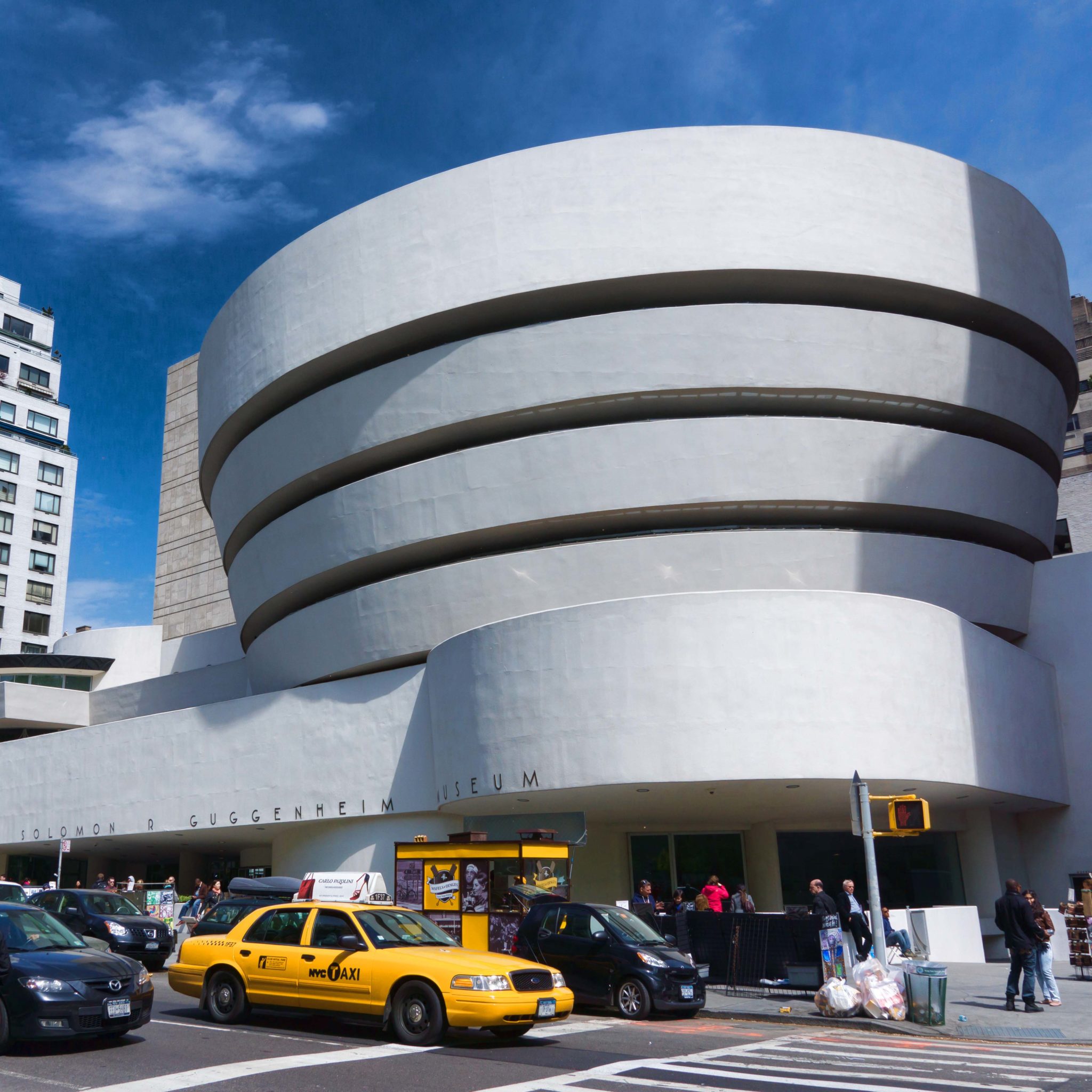
Wikimedia Commons
The John Simon Guggenheim Memorial Foundation awarded Guggenheim Fellowships to 175 scholars, artists and writers, including 14 Yale faculty and alumni.
The foundation, which announced the winners on April 8, chose the winners from a pool of 3,000 applicants based on “exceptional capacity for productive scholarship” or “creative ability” in the arts. The Yale winners are James Campbell ’80, Anne Cattaneo DRA ’74, Robert Gooding-Williams ’75 GRD ’82, Leor Halevi GRD ’95, Leslie Hewitt ART ’04, Sarah Parcak ’01, Nathaniel Persily ’92, Danna Singer ART ’17, A.L. Steiner, Peter van Agtmael ’03, Caroline Weber GRD ’92 ’98 and Ben Yagoda ’75. Edyta Bojanowska and Jennifer Doudna, who were awarded honorary degrees in 2017 and 2016 respectively, also won the fellowship.
Singer, a photographer and lecturer at the School of Art, likened being named a Guggenheim Fellow to “standing on the shoulders of the giants in my field who have received this award before” her. “I was thrilled,” Singer said. “It’s a little over overwhelming because it’s such an honor. I know that people are putting a lot of faith in me, and it’s absolutely beautiful.”
The Guggenheim Fellowships are six- to 12-month grants that provide fellows with time to focus on their creative work, no strings attached. According to the foundation’s website, grant amounts vary according to the annual budget and each fellows’ project proposal, but are allocated “as equitably as possible.”
The 2020 class of Guggenheim Fellows includes three faculty members: Bojanowska, Singer and Steiner. Bojanowska, a professor of Slavic Languages and Literatures with a secondary appointment in history, was awarded for her work in European and American literature. Her work concerns empire and nationalism in 19th-century Russian literature and intellectual history — exemplified by her most recent book, titled “A World of Empires: The Russian Voyage of the Frigate Pallada.”
Singer’s work was recently featured in the New Yorker and the New York Times, and at exhibitions around the world. The fellowship will fund a continuation of Singer’s current project, which is inspired by the struggles of America’s working poor. Her project explores “transient spaces,” like motels, in which members of this population must stay.
“My relationship to my subjects comes from lived experience,” Singer said. Because she grew up in working-class America, the struggles she depicts in her work have “always been on [her] mind.”
With the fellowship, Singer plans to travel around the nation, exploring “transient spaces” and using photography to bring awareness to the social ramifications of economic inequality.
In addition to her role as senior critic in film and video at the Yale School of Art, Steiner is co-curator of Ridykeulous and co-founder of Working Artists and the Greater Economy. According to her website, Steiner uses multimedia constructions as “seductive tropes channeled through the sensibility of a skeptical queer ecofeminist androgyne.” Her work has been exhibited in galleries at the Museum of Modern Art and Museum of Contemporary Art, Los Angeles.
With the fellowship, Steiner will work on a video project called “To Change Everything,” which is based on French feminist Francoise d’Eaubonne’s 1975 text “Féminisme ou la Mort” — “Feminism or Death.” Steiner’s project will provide the first English translation of d’Eubonne’s text.
The remaining 11 Yale-affiliated fellows are alumni who study disciplines ranging from history and philosophy to theater and biochemistry. Their projects span an even wider range of interests and concerns.
For example, Persily, a professor at Stanford Law School, co-directs the Stanford Project on Democracy and the Internet. According to his website, Persily’s current work “examines the impact of changing technology on democracy.” At a time when many are avoiding the outside world amid social isolation policies, Persily plans to dedicate the rest of the year to solving the challenge of running a fair election during the coronavirus pandemic.
Sharlat, a composer and professor at the University of Texas, plans to use the fellowship to focus solely on composing music. This possibly includes taking time off from teaching.
Over the last few years, Sharlat has focused on composing works for chamber ensembles and orchestras. He wrote for well-known ensembles including the Kronos, Aelous and Aizuri Quartets. One of his pieces appeared on the Aizuri Quartet’s Grammy-nominated album, “Blueprints.”
Martin Bresnick, a Yale composition professor who taught Sharlat, called him “outstanding, not only because his compositions were far-ranging and imaginative,” but because of his “multicultural inheritance.” Sharlat immigrated to the United States as a Russian refugee at age 16, then attended the same high school as Bresnick.
During his time at Yale, Sharlat worked on several projects with the Yale Cabaret and Yale School of Drama, including one memorable work titled “Vladimir Mayakovsky: A Tragedy.” He has also written for dance, mechanical sculptures and animations.
“Ever since I was a kid, I’ve been itching to write an opera,” Sharlat said. With the time and funding granted by the Guggenheim Foundation, he plans to do exactly that.
The Guggenheim Foundation has awarded its fellowships since 1925.







